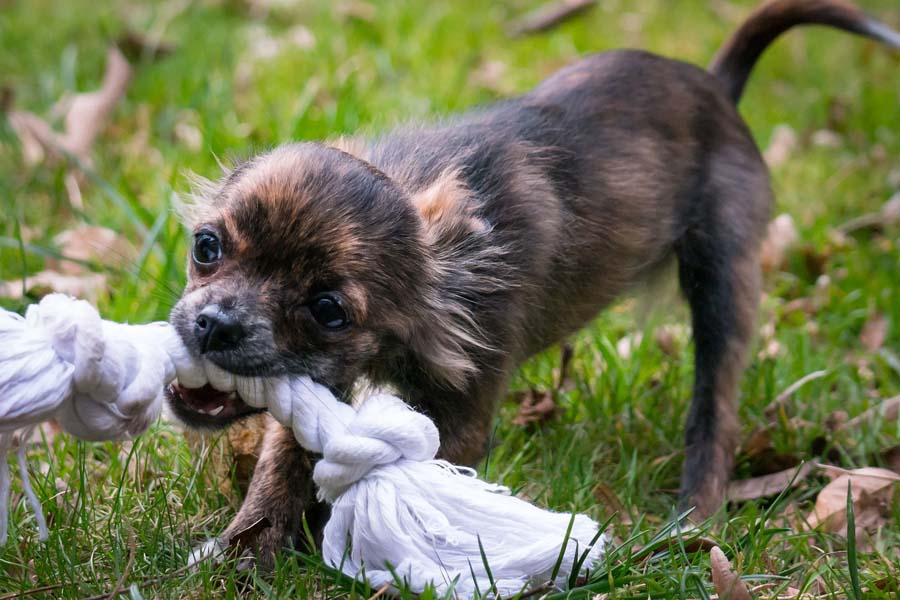A Turramurra Vet Article
Ouch! Why is my Puppy Biting me and How do I Stop it?

Ouch! Why is my Puppy Biting me and How do I Stop it?
by Katie Bedrossian, Pet Behaviour Consultant
Puppy biting and mouthing between 8 weeks to 6 months of age is a very normal phase in development.
While those puppy teeth are sharp and your puppy persistent, puppy biting is often due to play and excitement. It is used to increase bonding, initiate interactive play and for learning to use their mouth safely in the event of defense (i.e. bite inhibition).
Puppy biting reaches a peak between 12-16 weeks. While it can seem like nothing is working during this time, the below tips will help you survive, come out the other side with a stronger bond and give your puppy the tools to gradually reduce the biting by the time they are 5-6 months.
- Ensure everyone in the household 10 and over (who understand the rules of tug) has a long tug toy in their pocket. A 50cm long rope or a homemade braided felt rope can work well.
- Make tug games a regular part of the routine; first thing in morning, with every toilet trip outside, on reuniting after separations, before afternoon/evening puppy zoomies and whenever you see your puppy is ready for interaction and play.
- Follow every tug game with mental exercise such as feeding meals or treats in slow feeder bowls, snuffle mats or treat dispensing toys. Search games in cardboard boxes and training exercises also work well.
- Avoid using verbal reprimands, even imitation yelps. These often get puppies more excited as we are adding our attention. In addition, it is a situation they are too emotionally hyped up in to be able to read tone of voice.
- When your puppy bites hard, calmly stand up, hands on shoulders and avoid eye contact. If your puppy doesn’t move away to do something else due to higher excitement levels, redirect to the tug toy in your pocket.
- Children under 10 need parents to redirect the puppy to the tug toy as well as management such as pens and tethering the puppy to a table to prevent the biting in the first place.
For further assistance or if you feel your puppy is biting out of frustration, fear or anxiety (which is atypical and should be addressed by a behaviour consultant asap), please contact us to arrange a behaviour consultation.

